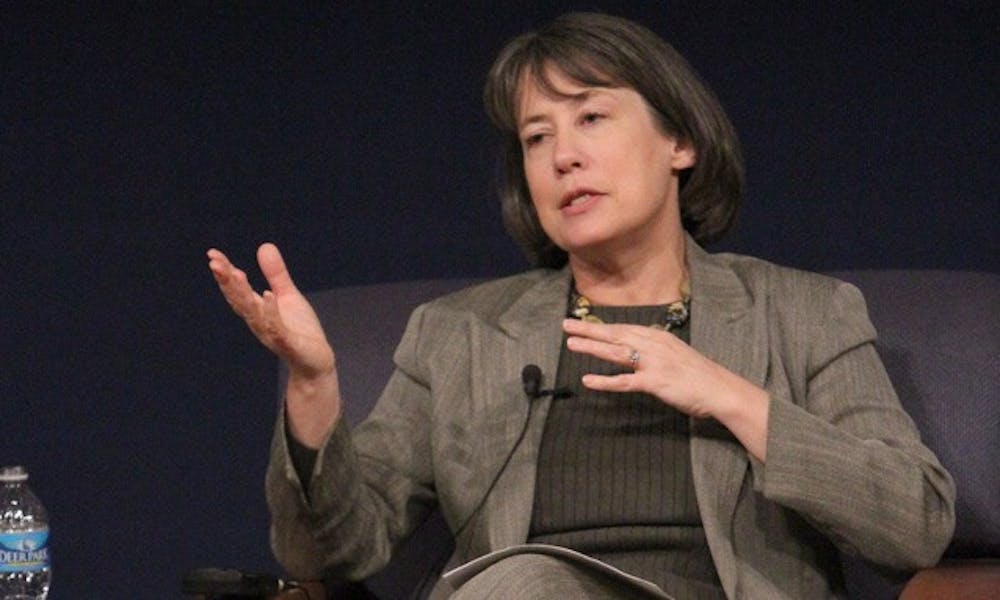In her visit to Duke, the chairman of the Federal Deposit Insurance Corporation recalled failures that led to the financial crisis and offered suggestions for avoiding similar problems in the future.
Sheila Bair, who was elected chairman of the FDIC in 2006, noted in a panel discussion Tuesday that a strong moral compass and sense of a responsibility would have gone a long way in avoiding the financial crisis. In the aftermath of a downturn intensified by failures of accountability, Bair and other panelists stressed the role of education in promoting business ethics and future crises.
“I think everybody could have seen [the recession] if they were looking, but they were looking the other way,” Bair said. “There was a systematic breakdown in accountability.”
Complementing the idea of vigilance in business, the panel criticized the common perception that regulation is harmful—an issue Bair consistently encounters in her position.
“Culturally, we see regulation as an annoying thing,” Bair said. “I think public support for the regulatory practices is very important, but we don’t—even though it’s in the public’s best interest. Reaching out to the public and letting them know what we’re doing and why we do it is very important.”
Bair spoke of personal experiences during the discussion. One of the first government officials to recognize developments of the subprime mortgage crisis, Bair explained how her background prepared her to critically examine economics. Born in Kansas, Bair gave credit to her traditional upbringing and career as a civil rights lawyer for helping her to develop a “strong sense of values for self-help and accountability.” This helped her identify issues related to unsound mortgages practices.
“I think the traditional view was mortgages are a safe product, which was true, they were safe because there was a heavy down payment,” Bair said. “Unfortunately, we separated the origins of the debt from those who made the securities and sold them off.”
Bair was joined by Blair Sheppard, dean of the Fuqua School of Business; Bruce Kuniholm, dean of the Sanford School of Public Policy; Lawrence Baxter, professor of the practice in the School of Law; and Seth Gardner, executive director for the Center for Financial Excellence.
A number of the Duke administrators agreed with Bair about the idea of accountability and noted ways in which students in their schools are being taught to prevent similar situations in the future. Sheppard noted that applicants to Fuqua must assess in their applications “what it means to be a leader of consequence.” Kuniholm said Sanford students are constantly asked to “challenge their basic assumptions” in ethics courses instead of mechanically applying their beliefs.
Senior Alison Liu said she appreciated Bair’s insight concerning education, which she believes is crucial in shifting attitudes.
“The values and ethics theme was great. It is clear that we need to change our culture through educational institutions,” Liu said.
Senior Laura Jorgens commended the panel for its discussion, noting that as students enter the business world, they should ensure accountability in practice. She added that teaching ethics at both the undergraduate and graduate levels of universities is key for ensuring change.
Get The Chronicle straight to your inbox
Signup for our weekly newsletter. Cancel at any time.

